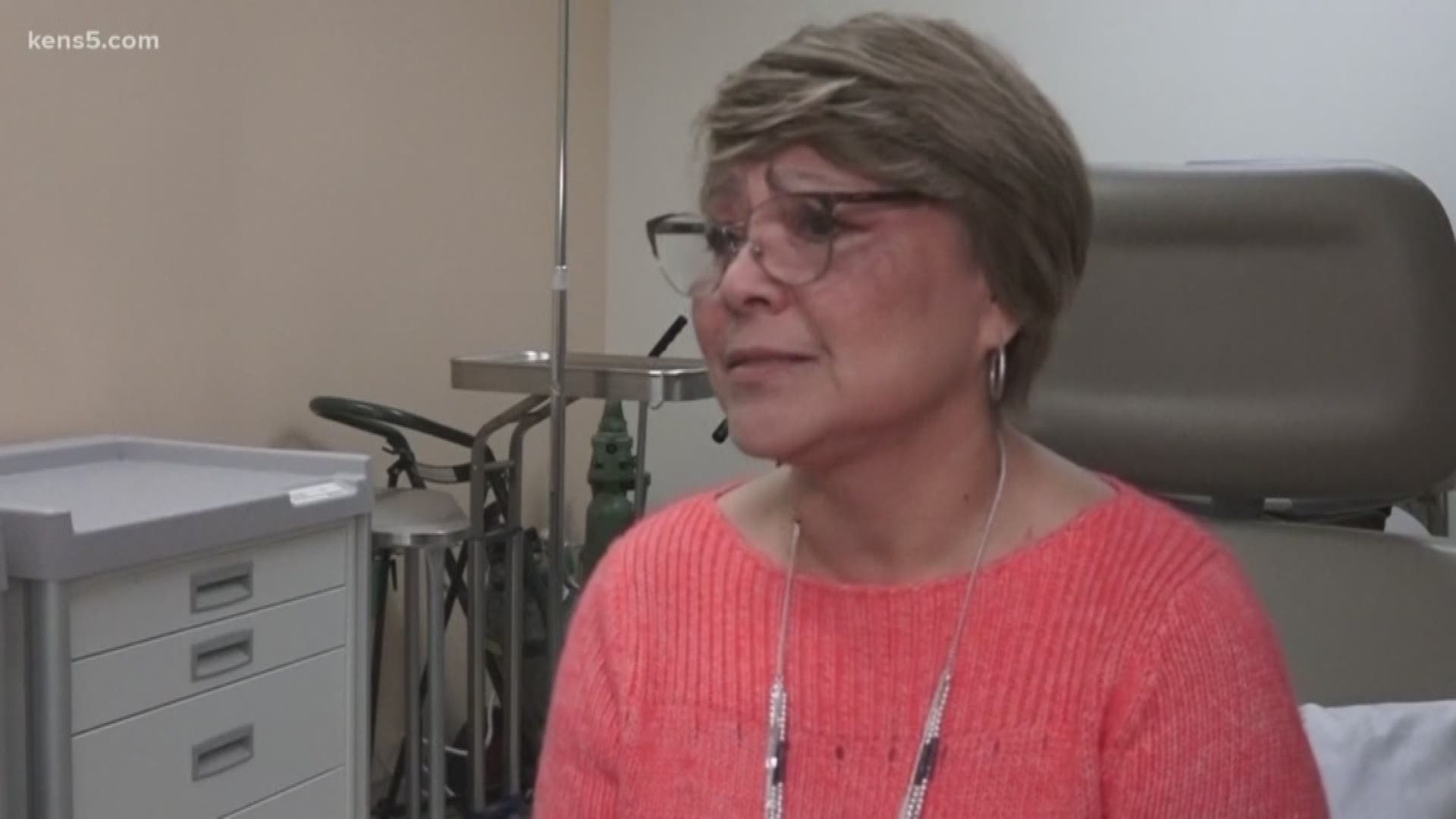SAN ANTONIO — About 4,000 women die from cervical cancer every year. But when detected at an early stage, the five-year survival rate for women with invasive cervical cancer is over 90 percent.
Linda Martinez is one person who caught her disease early, and now she's well on her way to being cancer-free.
Martinez's cervical cancer was diagnosed through a Pap smear last March. She says she made sure to get regular Pap smears, but said the positive result shocked her.
"It was a surprise for me," she said. "After that the doctor prescribed me some tests to find out exactly what kind of cancer it was."
Martinez had no symptoms, but Dr. Rochelle David, an associate professor in the Department of Obstetrics and Gynecology for UT Health San Antonio, said that's normal in the early stages.
"For cervical cancer in the early stages that we can pick up, there really aren't a lot of symptoms, which is why it's very important for women to come in for their regular screening," David said.
In later stages, some of the symptoms of cervical cancer include abnormal vaginal bleeding, unusual vaginal discharge, pelvic, back or leg pain, major fatigue and nausea, and sudden weight loss.
For Martinez, side effects including nausea, weakness and depression were a problem.
The side effects waned, and now that she's about to complete six cycles of chemotherapy this month, Martinez says her faith and family has helped her through it all.
"One time I felt that my sister was my hands, my feet, everything, because she did everything for me," she said. "I wasn't able to do it."
The HPV vaccine helps stop the spread of cervical cancer and five other cancers, and it's approved for both men and women between the ages of 9 and 45. It wasn't around early enough for Martinez to receive it, but she said everyone should get the vaccine to avoid experiences like her own.
For more information about family health, call (21)358-3045. You can also find the rest of our Wear The Gown stories here.

